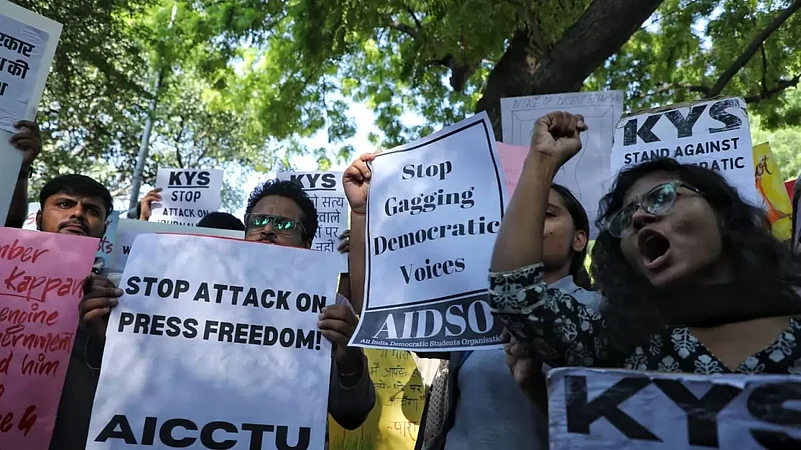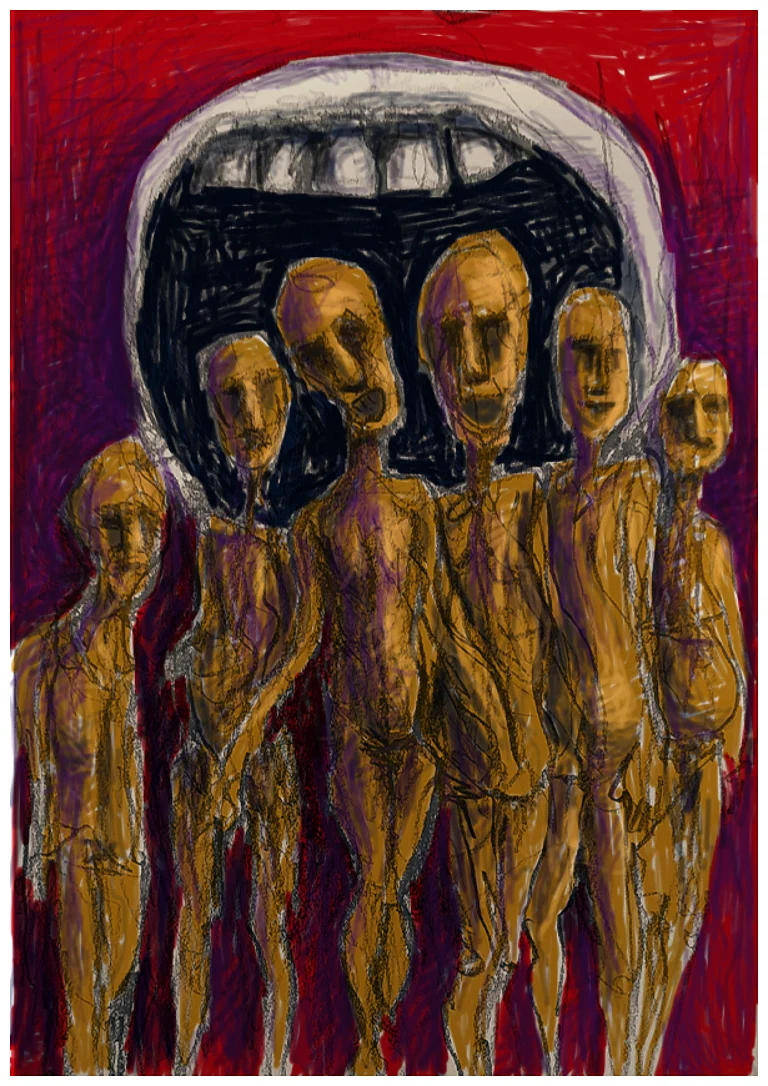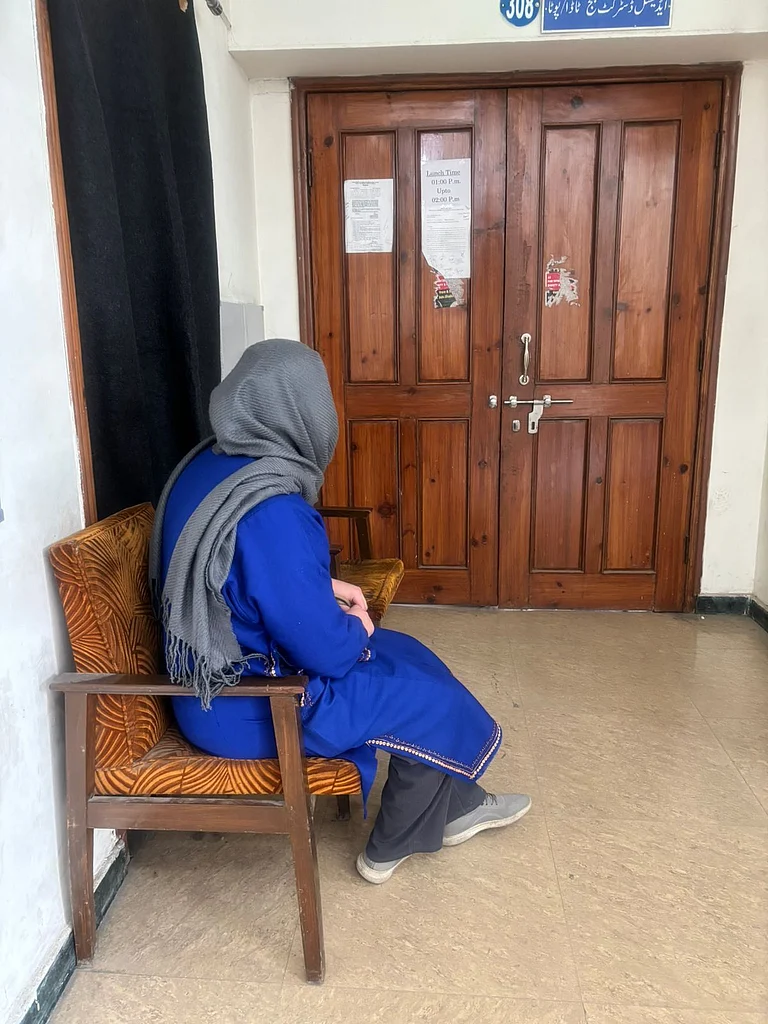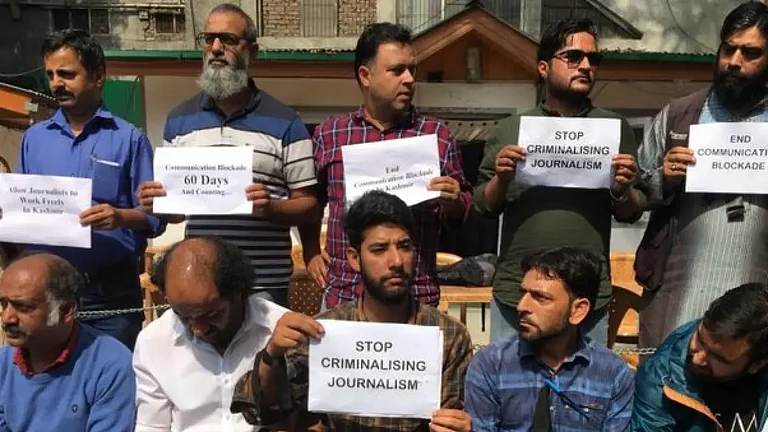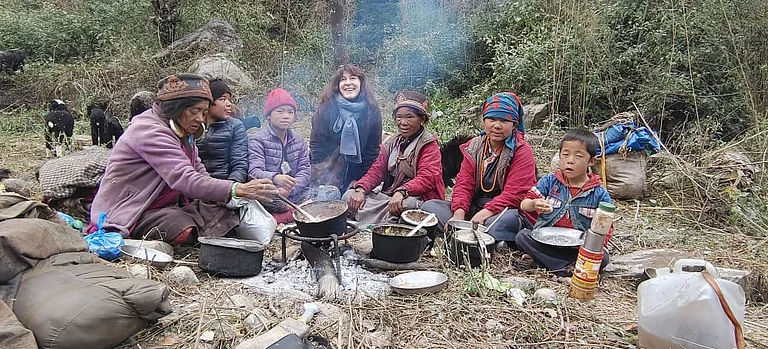On March 21, 2023, Pradyud Bordoloi, a Congress member from Assam, raised an unstarred question in the Lok Sabha asking for details of journalists who have been arrested under the Unlawful Activities (Prevention) Act (UAPA), Indian Penal Code (IPC), and other penal laws in the last five years. He also sought information regarding the specifics and frequency of Information Technology surveys and raids conducted by the government on news organisations in the last five years and the current year.
In response to these questions, Anurag Singh Thakur, the Minister of Information and Broadcasting and Minister of Youth Affairs and Sports, informed that the government does not have any data on journalists being framed. He conveyed that as delineated in the Seventh Schedule of the Constitution, ‘Police’ and ‘Public Order’ are state subjects. Hence, the National Crime Records Bureau (NCRB) has no consolidated statistics of journalists arrested or framed under various penal laws.
Though the government does not have the data, the alarming trend of journalists facing charges under draconian laws like the UAPA has become distressingly common in India in recent years.
The Free Speech Collective, a platform for research and campaigns on free speech, reported last year that at least eight journalists were behind bars as under trial, facing charges under the UAPA -- of which some have been released now. Additionally, there are other instances where journalists have been booked but subsequently released on bail.
The Supreme Court on Wednesday ordered the release of NewsClick founder Prabir Purkayastha, six months after he was arrested by the Delhi Police Special Cell for allegedly receiving illegal funding from China, routed through the United States. While pronouncing the order, the top court noted that the grounds of arrest have not been provided. In this light, it becomes crucial to examine the cases of journalists who have been unjustly framed under the draconian provisions of the UAPA.
According to Free Speech Collective, 16 Indian journalists have been booked under UAPA as verified so far.
Asif Sultan, a Kashmiri journalist, who extensively reported on civil unrest in Kashmir, was arrested on August 27, 2018 under UAPA. Although he was granted bail in April 2022, he was not released, but re-arrested under the Public Safety Act. A special court in Srinagar on May 15 granted him bail and ordered his release.
Another Kashmiri journalist, Fahad Shah, the founder and editor of The Kashmir Walla, was arrested under the UAPA on the February 4, 2022, on charges of “frequently glorifying terrorism, spreading fake news, and instigating people.” While he was granted bail three weeks after his initial detention, he was subsequently re-arrested on new charges. Shah was released from jail in November 2023 after more than 600 days of confinement.
On January 5, 2022, Sajad Gul, a trainee reporter with The Kashmir Walla, was detained in Kashmir, allegedly due to a video he posted on Twitter related to women protesting the killing of a local militant commander. The video, which was subsequently removed, led to his arrest on charges of “provoking people to resort to violence and disturb public peace”. He was also booked under the draconian Public Safety Act, wherein a suspect can be detained without charges and put behind bars without trial for up to two years. Although the Jammu and Kashmir High Court quashed the PSA charges against Gul in November 2023, he continues to remain in jail.
Rupesh Kumar Singh, an independent journalist from Jharkhand, has been in detention since July 2022, facing three investigations under various laws, including the UAPA, for alleged involvement in Maoist activities. He has been targeted allegedly due to his reporting on human rights issues affecting India’s tribal communities, including forced displacement, state militarisation, environmental degradation, and alleged extrajudicial killings.
Manan Gulzar Dar, a Kashmir-based photojournalist, also known as Mohammad Manan Dar, was arrested in October 2021 under the UAPA. The National Investigation Agency (NIA) claimed that he had links with terrorist groups, stemming from an FIR filed in New Delhi by the NIA in response to the killing of five people by alleged militants in early October.
Siddique Kappan, a Malayali journalist, was released on bail after two years of imprisonment following his arrest in October 2020 while en route to Hathras, Uttar Pradesh, to report on the “Hathras gang rape and murder” case. Kappan, a freelancer contributing to multiple Malayalam news outlets, had been arrested under the provisions of the UAPA and was released on bail in December 2022.
In November 2021, the BJP government in Tripura booked 102 persons, including journalists, under UAPA for ‘publishing and posting distorted and objectionable’ news items relating to the October 26 communal tension. According to a media report, the UAPA section is imposed for abetting or inciting a community for unlawful activity, which is punishable for imprisonment for seven years or more.
On March 20, 2023, Kashmiri journalist Irfan Mehraj was apprehended by the NIA in Srinagar. His arrest came in connection with a case dating back to 2020, which alleged involvement in terror funding through non-governmental organisations (NGOs). The central agency, in a statement released, asserted that Mehraj had close ties with human rights activist Khurram Parvez, who himself was taken into custody in November 2021 under the sections of UAPA related to terror funding. Mehraj continues to remain in jail.
This is the list of journalists booked exclusively under UAPA. Several journalists have been framed up under other penal provisions like sedition, Public Safety Act, National Security Act, etc.
“The unprecedented increase in the number of journalists being charged under draconian laws like the UAPA is a dangerous indication of the perilous state of free speech in India.
When UAPA is used against journalists who seek to investigate and report on a range of issues, it criminalises their legitimate work and stigmatises them as “terrorists”, says Geeta Seshu, a senior journalist and a member of the Free Speech Collective.
The law is ostensibly used to curb terror activities. Its punishing process is designed to make jail a rule and bail is granted only after months and years in prison. Apart from other draconian acts like the Public Safety Act in Jammu and Kashmir and the Chhattisgarh Jan Suraksha Adhiniyam, the National Security Act and provisions like sedition in the Indian Penal Code, UAPA is used to charge human rights activists, lawyers, students, workers, tribals, etc, she adds.
“Now, patriotism, national security and allegedly anti-national activities have joined the basket of charges in the UAPA arsenal, as the latest instance of the arrest of the editor of NewsClick, Prabir Purkayastha shows. In a democracy, journalists are messengers of news and information. Silencing them will silence their reportage and commentary of important issues and the democratic right of citizens to access information without fear is compromised,” says Seshu.


